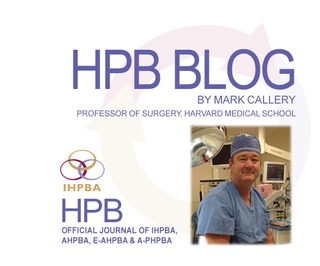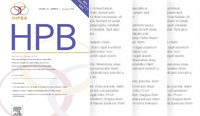International Hepato-Pancreato-Biliary Association
HPB Blog, August 2018

In its August 2018 issue now available on line, HPB offers its readership an exciting blend of original articles sure to please. During editorial review and now better while reading the published content, I have been struck by the depth and quality of the studies as well as the practical and timely knowledge they provide. I’d like to frame our August articles for you around three themes: Hepatectomy, Liver Regeneration and Pancreatectomy Outcomes. And, there are additional articles and a provocative editorial to highlight as well.
Hepatectomy- Coelho et al from Sao Paulo offer a systematic review and meta-analysis of 21 studies essentially to promote hybrid (MIS+open) hepatectomy. We learn that hybrid techniques have outcomes that reflect more pure laparoscopic approaches than open surgery. Less may be more however that less is achieved. This paper will encourage liver surgeons keen to climb a hepatectomy learning curve that emphasizes hybrid procedures. Oba et al from Japan detail how “disappearing” liver metastases from colorectal cancer need be properly staged with 2018 intraoperative imaging techniques such as contrast-enhanced intraoperative ultrasound utilized upon preoperative hepatocyte-specific MRI. Have these lesions really disappeared? You decide. As I noted in my August highlight, if like Donadon et al from Italy believe, comfortably utilize a thoraco-abdominal approach for hepatectomy if that’s what you deem required. Disclosure- In my 10 yrs of working for James Garden and HPB, this is the first hepatectomy highlight I’ve been assigned. Welcome all other views! Fruscione et al from the USA provide a great paper advancing patient-specific care using a center-specific preoperative prediction calculator for risk of outcomes following major hepatectomy procedures. If you claim your high volume center is truly better, this will help you consider how to prove it going ahead.
For Liver Regeneration- At the molecular level, why does ALPPS work? Ask Uribe et al from Chile who evaluated 11 patients with assured regeneration with ALPPS to indicate of possible hepatocyte proliferation induced by mTOR pathway activation. Sure, there’s bigger science and techniques out there, but this fine work in my opinion highlights why surgeons carry so many keys for high-end collaborative research. Build and engage a team across scientific talents! We hold and can provide what true basic scientists crave for. Russolillo et al from Italy indicate that alcohol injection into the portal vein prior to vein ligation increases liver regeneration rate. Results were simply made upon observed remnant volumetric increases.
For Pancreatectomy Outcomes- LB van Rijssen et al from the Dutch Pancreatic Cancer Group indicate that variations in mortality between hospitals after pancreaticoduodenectomy relate to “failure to rescue” clinical issues rather that the incidence of purely major complications. It’s a revealing analysis among 1342 patients because mortality was low, but failed rescue was not. DPJ van Dijk et al from the Netherlands flash the lights of risk for patients undergoing resection of periampullary cancer when preoperative MRI confirms “myosteatosis”. Post-pancreatectomy hemorrhage classification is revisited by none better than the world thought leaders in Verona, Italy in an outcomes-based analysis by Garces et al.
Beyond these, we offer four other great contributions! Siddiqui et al ask what North American HPB fellows think about the quality of their training programs. The ELITA association reports on outcomes for over 23,000 patients transplanted for hepatocellular carcinoma, focusing on outcomes related to vascular invasion and survival. Incredible! The Dutch Pancreatitis Study Group alerts us to colicky pain and related complications in at least 15% of patients undergoing definitive cholecystectomy for mild gallstone pancreatitis. Finally, my fellow Editors Ewen Harrison and Steve Wigmore together w/ K Soreide of Norway frame unresolved issues in gallbladder cancer from a global perspective in a stimulating editorial.
Enjoy your August 2018 issue, and thanks for supporting HPB! Also, please take a look at our Virtual Journal Club offerings for HPB. We hope they will facilitate learning and updating for our readership. Finally, our Editorial team hopes to see many colleagues next month in Geneva, Switzerland for the 2018 IHPBA World Congress. As always, we’ll encourage the participating investigators to submit their fine work to HPB.
Mark P. Callery, MD, FACS
Professor of Surgery
Harvard Medical School
Corporate Partners
If you are interested in becoming a Corporate Partner of the IHBPA please contact industry@ihpba.org
Find out more


